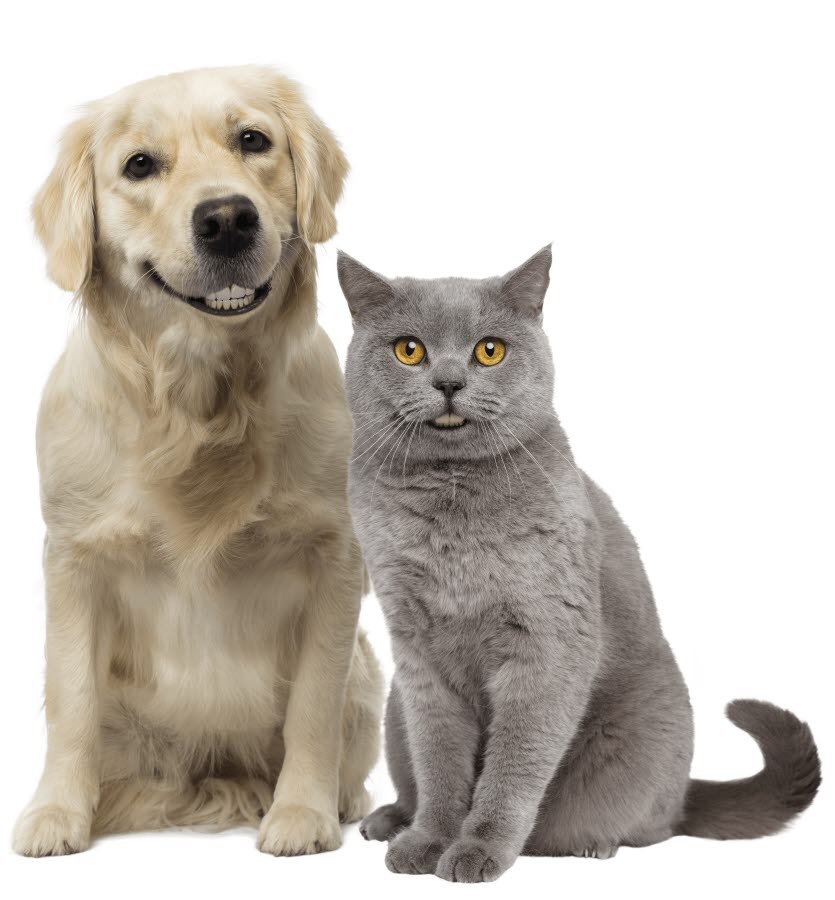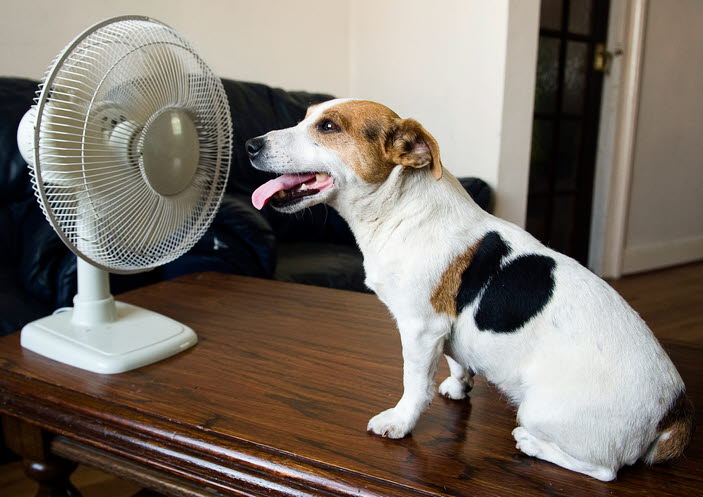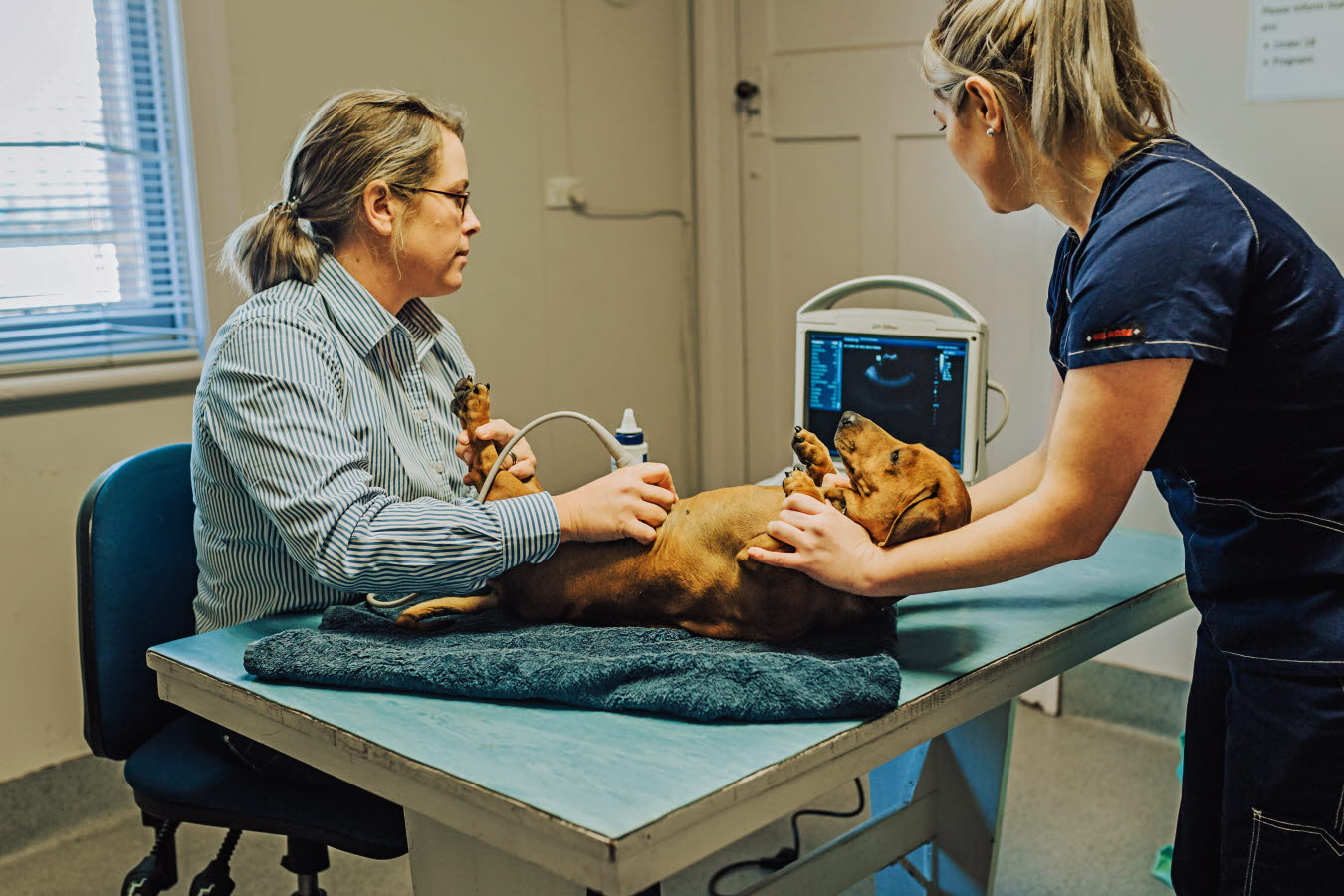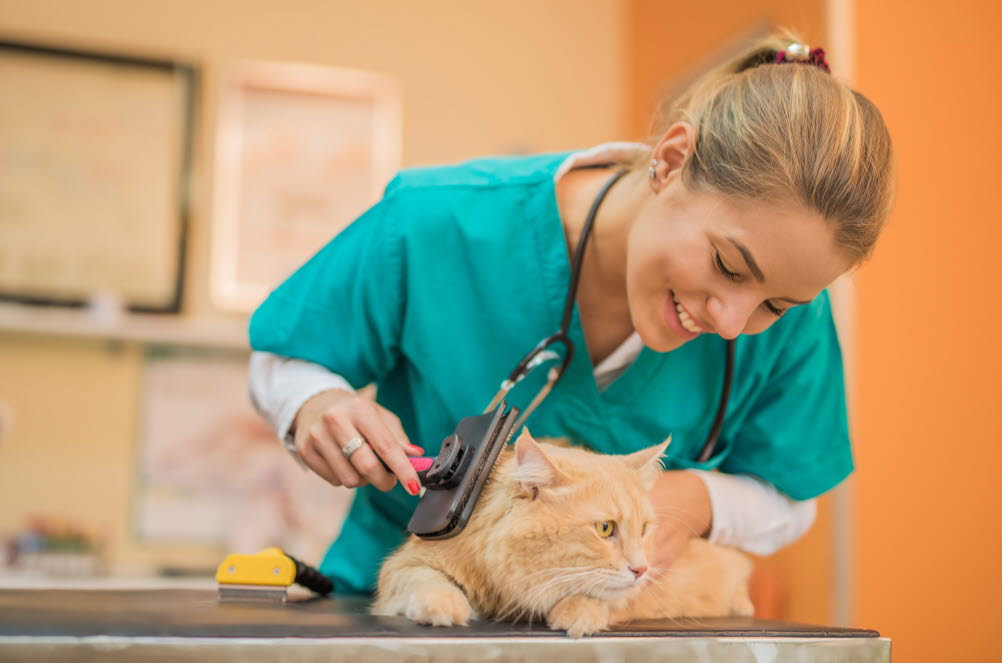Pet ownership

Common general questions about pet foods, travelling with pets and animal health
There are times when you may want a second opinion, or your veterinarian refers your pet to another veterinarian.
In such cases, the second veterinarian will require the information from your pet’s records from your usual vet.
Your pet's case histories and veterinary records can be transferred vet-to-vet. This is to ensure compliance with state regulations around veterinary records. The ownership of the records remain with the initial veterinarian who recorded these, and depending on state jurisdiction they are required to keep these records for a prescribed period of time. The second opinion or referral veterinarian receives a copy of the records to ensure that they have the complete health picture for your pet and is required to return any actual records to the first veterinarian.
To find out why your veterinarian will not usually pass your pet's records onto you, have a look at our FAQs on I pay for my pet's treatment, why am I not entitled to my pet's files?
If you think your animal has experiences an adverse reactions to a medication or animal health product, we recommend that you contact your veterinarian. Please note the date, time and any signs and symptoms that you observed.
The Australian Pesticides and Veterinary Medicines Authority (APVMA) are responsible for the registration of drugs. They have a reporting page on their website for adverse reactions: http://apvma.gov.au/node/311 which is available to both veterinarians as well as the general public. Your veterinarian would be in the best position to describe the clinical signs and symptoms however you are free to also lodge the report if you so wish.
The entry of companion animals into Australia is regulated by the Australian Government Department of Agriculture and Water Resources.
The conditions imposed on companion animals entering Australia are designed to manage biosecurity risks. Australia is free of many diseases that affect animals of other countries due to our strict quarantine laws as many of our unique flora and fauna do not have natural immunity to these diseases. Healthy animals may be carriers of diseases that threaten our ecosystem and wipe out entire species.
You can visit the Bring cats and dogs (and other pets) to Australia information page on the importing requirements of pets into Australia. You can use their online calculator for an estimation on approximately how long processing will take and find a step-by-step guide to walk you through all the preparations and documentations required.
The AVA has provided several media releases on the dangers or some festive foods to our animals.
You should always consult your veterinarian when in doubt. Some foods may be lethal to some species, while others may cause serious discomfort or pain.
For dogs these are some of the foods to avoid:
- Chocolate
- Avocadoes
- Turkey Skin and Pork Crackling
- Onions and Garlic
- Grapes and Raisins
- Macadamia Nuts
- Raw Eggs
- Mushrooms
- Raw fish
- Citrus Fruits
- Green potatoes
- Large quantities of salt
There is also evidence that the artificial sweetener Xylitol is toxic to dogs. Xylitol is present in some overseas brands of peanut butter and also in many human products such as sugar-free lollies. As peanut butter in particular is a popular treat for many dogs, it may be necessary to pay attention to any brands that may contain this ingredient. Food Standards Australia and New Zealand are the government agency and their Food enforcement contacts in each state may advise on brands to be avoided.
A veterinarian can only legally prescribe prescription drugs for animals that are under their care. They need to have examined your animal, made a diagnosis and determined what drug and how much and how often that the drug is required.
Most veterinarians have in house pharmacies and can dispense the medication for you on the spot, giving you the convenience of immediate access to the medication and a reassurance that you have received the correct medication. Veterinarians receive their drugs from legal, trustworthy sources and there is an accountability trail for the particular drug that can be traced back to a company or even to a batch number should anything go wrong.
Some owners may decide that they would like to purchase their pet’s medication online. In this case you will need to request that your veterinarian writes a script for you. You will be charged a prescription fee to prepare the script, which includes the veterinarian accessing records, determining whether the script is appropriate and the record keeping that is required. You will need to find an online pharmacy which is based in Australia and trustworthy. Purchasing prescription drugs from overseas is illegal. Once you have made the order, you will need to post this script to the online pharmacy, just like the chemists you visit, they cannot dispense medications without first receiving the actual script.
If your animal requires ongoing medication, depending on the medication your pet is on and your animal’s condition your veterinarian may require you to bring your pet in to be re-examine. This is so the vet can assess whether the drug and dosage are still appropriate; that the medication is doing what it should be and that there are no unintended side-effects. Some medications require ongoing blood tests to check their levels, and/or their effects on the body’s metabolism. This re-examination will be required before the veterinarian will be able to issue you with a repeat prescription.
Remember a veterinarian cannot legally write a script for an animal which is not under their continuing care.
Regulation of prescription drugs are covered under the Poisons and Therapeutics Goods legislation in your state and rules differ in each state.
The regulating body in Australia for veterinary medicines is the Australian Pesticides and Veterinary Medicines Authority
The APVMA issued a media release in 2010 to educate consumers about the legal issues of importing medications via mail. Australian authorities do not have powers to regulate or prosecute overseas suppliers. There is no protection for Australian consumers if something goes wrong with the drugs.
It is worthy to note also that it is illegal for veterinary medicines to be purchased under the human PBS Schemes, as that is intended purely for human medicine use. Veterinary medicines may contain similar compounds but may be in different doses to the human version and therefore not intended for cross-usage.
A serum antibody titre test will demonstrate the levels of antibody to a particular virus or bacteria, in a dog, at a particular time. Titre tests cannot guarantee immunity against disease, or that the patient won’t shed infectious virus / bacteria. However, a sufficiently high titre is generally able to reflect strong immunity for some diseases. Titre testing is also limited to only one part of the immune system (antibodies, which is part of humoral immunity) and does not give an indication on other immune system parts such as cell-mediated immunity or mucosal immunity. Veterinarians may recommend a titre test, as a means to suggest immunity against some diseases, and in some cases a sufficient result from a titre test may indicate that revaccination of a patient may not be immediately necessary and could be postponed into the future.
Are titre tests useful?
Titre tests are useful to demonstrate antibody levels, which if sufficiently elevated, may correlate with a strong likelihood of protection against some diseases. The ability to associate a titre level with likely protection against disease depends on the pathogen (bacteria or virus) and on the patient’s risk for disease. Your veterinarian can recommend when a titre test may be indicated.
Boarding kennels and catteries and their vaccination requirements
There is scientific evidence that the majority of adult dogs in low-risk environments will be protected against disease for three years with core vaccines.
However, as not all dogs are guaranteed protection, boarding kennels may require recent (annual) re-vaccination of animals prior to entry, to safeguard against potential disease spread, for which they may be liable.
Outbreaks of canine parvovirus occur Australia wide, including areas of all capital cities and for this reason, pet owners should consult with their veterinarian as to whether their pet is in a low risk environment.
For cats there is not sufficient evidence that immunity following vaccination is long-lasting, particularly for feline herpesvirus. Furthermore outbreaks of feline panleukopenia appear to have re-emerged in several capital cities and other areas in recent years. For this reason, cats going into boarding should receive an annual booster vaccination.
If a cat or dog is contraindicated for vaccination due to medical reasons (for example an underlying autoimmune disease or severe vaccination reaction, both of which are very rare but may occur) then your veterinarian is the best person to provide specific advise around boarding, and risk of disease.
Canine cough is a highly infectious respiratory infection among dogs, which is why it is important to keep a dog up to date with their vaccinations.
The cough is caused by a combination of bacteria and viruses. Of these, only the bacterial component is a potential concern in terms of transmission to humans, but this is highly unlikely. There have been very few reports of transmission of the bacteria to humans, and these were almost always in people with severely compromised immune systems.
As with any handling of animals however, we always advise hand washing and normal hygiene practices are used, especially if the animal is currently unwell.
There may be many reasons that a member of the community may have difficulties in communicating and may require extra support when visiting a vet.
The Australian Government has a number of resources for those requiring extra support.
The National Relay Service (NRS)
People with communication difficulties (hearing and speech impairments) can use the National Relay Service , a free telephone-based communication service (Australian Government initiative funded by telecommunications companies).
Many NRS users also utilise TTY service (telephone typewriter) which is a special texting telephone for those who cannot use their voice, or who cannot hear.
There are also AUSLAN (Australian Sign Language) interpretation services for those who primarily communicate in AUSLAN: http://www.auslanservices.com/
Translation and Interpretation Services
People whose first language is not English and require foreign language support can use Translation and Interpretation Services (TIS) who use NAATI-accredited translators (text) and interpreters (speech) in 160 languages. They also have real-time and on-site services available.
Vision impairment Support
The Australian Braille Authority have braille transcription services for those who require print material to be transcribed in Braille. Vision Australia also have print accessibility services available.
Trending Now

Important steps to dental and oral health in dogs and cats
4 years ago
Be prepared for common summer hazards for pets
4 years ago
Why is digestive health so important for dogs and cats?
3 years ago


